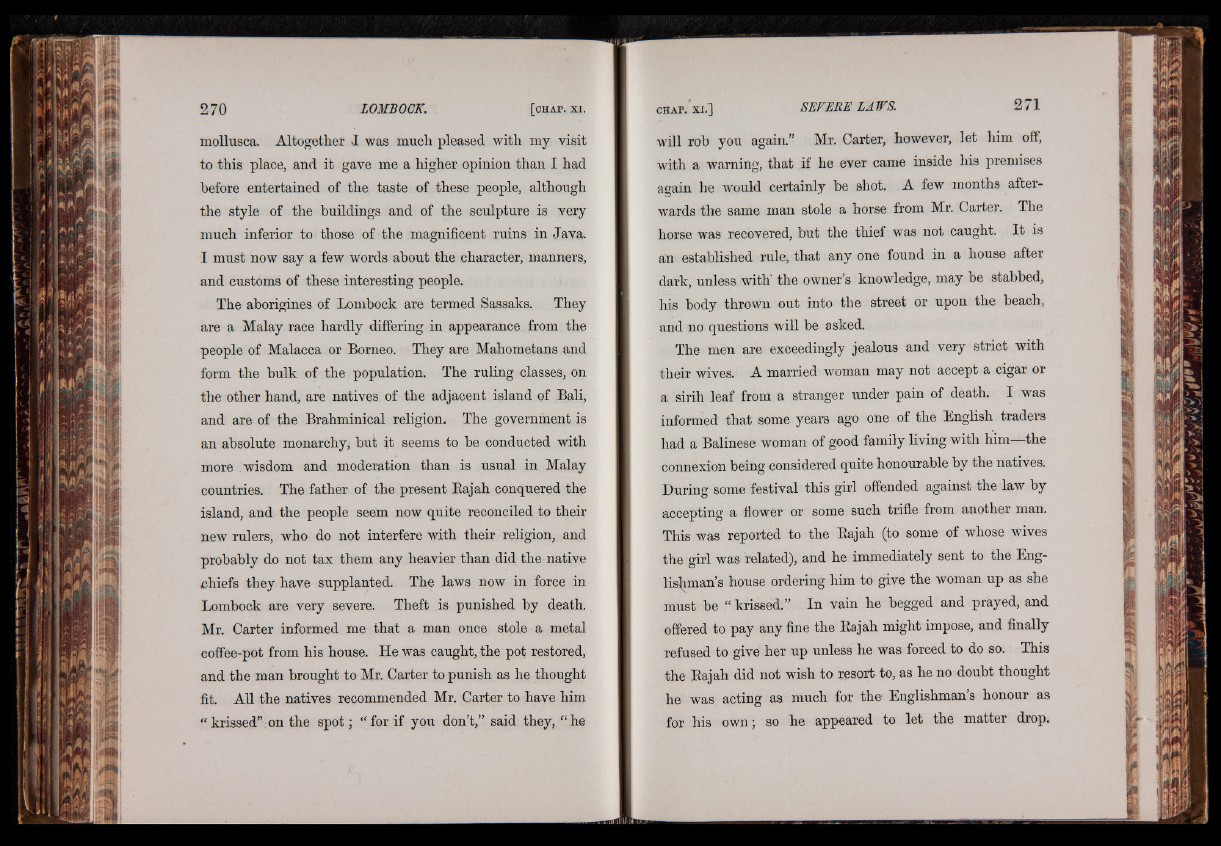
mollusca. Altogether .1 was much pleased with my visit
to this place, and it gave me a higher opinion than I had
before entertained of the taste of these people, although
the style of the buildings and of the sculpture is very
much inferior to those of the magnificent ruins in Java.
I must now say a few words about the character, manners,
and customs of these interesting people.
The aborigines of Lombock are termed Sassaks. They
are a Malay race hardly differing in appearance from the
people of Malacca or Borneo. They are Mahometans and
form the bulk of the population. The ruling classes, on
the other hand, are natives of the adjacent island of Bali,
and are of the Brahminical religion. The government is
an absolute monarchy, but it seems to be conducted with
more wisdom and moderation than is usual in Malay
countries. The father of the present Bajah conquered the
island, and the people seem now quite reconciled to their
new rulers, who do not interfere with their religion, and
probably do not tax them any heavier than did the native
chiefs they have supplanted. The laws now in force in
Lombock are very severe. Theft is punished by death.
Mr. Carter informed me that a man once stole a metal
coffee-pot from his house. He was caught, the pot restored,
and the man brought to Mr. Carter to punish as he thought
fit. All the natives recommended Mr. Carter to have him
“ krissed” on the spot; “ for if you don’t,” said they, “ he
will rob you again.” Mr. Carter, however, let him off,
with a warning, that if he ever came inside his premises
again he would certainly be shot. A few months afterwards
the same man stole a horse from Mr. Carter. The
horse was recovered, but the thief was not caught. It is
an established rule, that any one found in a house after
dark, unless with’ the owner’s knowledge, may be stabbed,
his body thrown out into the street or upon the beach,
and no questions will be asked.
The men are exceedingly jealous and very strict with
their wives. A married woman may not accept a cigar or
a sirih leaf from a stranger under pain of death. I was
informed that some years ago one of the English traders
had a Balinese woman of good family living with him—the
connexion being considered quite honourable by the natives.
During some festival this girl offended against the law by
accepting a flower or some such trifle from another man.
This was reported to the Bajah (to some of whose wives
the girl was related), and he immediately sent to the Englishmans
house ordering him to give the woman up as she
must be |krissed.” In vain he begged and prayed, and
offered to pay any fine the Bajah might impose, and finally
refused to give her up unless he was forced to do so. This
the Bajah did not wish to resort to, as he no doubt thought
he was acting as much for the Englishman’s honour as
for his own; so he appeared to let the matter drop.